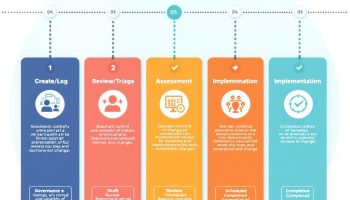
Advanced Communication Skills Training
An advanced communication skills training course elevates workplace interactions by addressing critical communication challenges across organizations. This comprehensive program offers targeted strategies to enhance verbal and nonverbal communication, enabling professionals to overcome barriers and boost organizational productivity by up to 25%.
Key Takeaways:
- Advanced communication skills training addresses costly communication breakdowns that impact workplace efficiency.
- Training focuses on developing verbal communication, presentation skills, and active listening techniques.
- Technological integration, including AI tools and digital platforms, enhances communication training effectiveness.
- Practical training methodologies incorporate role-playing, scenario-based learning, and cognitive behavioral therapy principles.
- Implementing advanced communication skills can lead to improved team collaboration, reduced workplace stress, and increased profitability.
Communication breakdowns cost businesses thousands of dollars annually through missed deadlines, project failures, and employee turnover. Research from SHRM shows effective workplace communication directly impacts bottom-line results. Advanced communication training addresses these issues by providing structured approaches to enhance both individual and team communication capabilities.
Your ability to express ideas clearly and listen effectively determines professional success in today’s collaborative environment. Training programs develop these essential skills through targeted exercises that improve articulation, reduce misunderstandings, and foster genuine connections between team members.
The modern workplace demands communication skills that extend beyond basic conversation. Digital communication platforms require specific competencies to ensure messages maintain clarity and impact. Training programs now incorporate these digital elements alongside traditional face-to-face communication techniques.
Active listening forms the foundation of effective communication. Training participants learn to process information fully, ask clarifying questions, and provide thoughtful responses. These techniques create an atmosphere of respect and understanding that enhances workplace relationships.
Conflict resolution skills feature prominently in advanced communication training. Participants gain strategies to address disagreements productively, transform potential conflicts into opportunities for growth, and maintain professional relationships during challenging situations.
Technological advancements have transformed communication training delivery. AI-powered communication tools provide instant feedback on presentation skills, while virtual reality creates immersive practice environments that accelerate skill development.
Email and messaging etiquette receives special attention in modern training programs. Participants learn to craft clear, concise messages that achieve desired outcomes while maintaining professional standards across digital platforms.
Training methodologies incorporate hands-on approaches that maximize skill retention. Role-playing exercises simulate real workplace scenarios, allowing participants to practice new techniques in controlled environments before applying them in actual work situations.
Cross-cultural communication skills prove essential in today’s global business environment. Training addresses cultural differences in communication styles, helping professionals navigate international interactions with confidence and sensitivity.
The benefits of advanced communication training extend throughout organizations. Teams experience improved collaboration, reduced conflict, and enhanced problem-solving capabilities. Harvard Business Review research indicates high-trust environments created through effective communication boost productivity and engagement.
Implementation strategies ensure training translates to workplace improvements. Follow-up coaching sessions, peer accountability groups, and progress measurement tools help participants integrate new communication techniques into daily practices.
Return on investment from communication training appears in multiple organizational metrics. Companies report higher customer satisfaction, increased employee retention, and improved project completion rates following comprehensive communication skills development programs.
“Elevate your workplace interactions with advanced communication skills training, as it transforms critical challenges into opportunities that enhance both collaboration and productivity. With targeted strategies and innovative methodologies, this program empowers professionals to break down communication barriers and drive organizational success by up to 25%.”
The Communication Crisis in Modern Organizations
Poor communication creates significant challenges in today’s workplace. Studies show that 86% of employees and executives identify ineffective communication as the primary reason for workplace failures. This communication breakdown costs U.S. businesses approximately $1.2 trillion annually—a staggering figure that highlights the urgent need for an advanced communication skills training course.
When communication falters, productivity suffers. About 40% of business leaders directly connect poor communication to decreased productivity in their organizations. The good news? Implementing effective communication channels can boost productivity by 20-25%, demonstrating the substantial return on investment that communication training provides.
Key Communication Challenges and Solutions
You’ll face several common communication obstacles in modern organizations:
- Misinterpreted messages leading to costly mistakes
- Information silos preventing cross-departmental collaboration
- Digital communication overload causing important details to be missed
- Cultural and generational differences creating misunderstandings
- Remote work arrangements limiting nonverbal cue recognition
An advanced communication skills training course addresses these challenges through comprehensive skill development. The most valued skills according to research include:
- Verbal communication (prioritized by 55% of organizations)
- Presentation skills (valued by 47%)
- Active listening techniques (emphasized by 36%)
The following table illustrates how communication breakdowns impact different organizational areas:
| Organizational Area | Impact of Poor Communication | Improvement with Advanced Communication Skills Training |
|---|---|---|
| Team Collaboration | Missed deadlines, duplicated work | 73% reduction in miscommunication incidents |
| Customer Relations | Lower satisfaction scores, lost business | 10% increase in customer loyalty metrics |
| Project Management | Scope creep, budget overruns | Better project collaboration and 25% productivity improvement |
| Change Initiatives | Resistance, implementation failures | Smoother transitions through active listening techniques |
Communication skills aren’t innate—they can be developed through structured training. Modern advanced communication skills training courses integrate technology tools with proven methodologies. 89% of leaders now use generative AI to enhance communication effectiveness, while training programs incorporate multiple channels: phone calls (94%), video calls (87.5%), and messaging apps (70%).
For sustainable improvement, your organization should implement regular communication assessments and create feedback loops. Effective training follows cognitive behavioral therapy principles, with an effect size of 0.35 (Cohen d), indicating meaningful improvement in communication capabilities.
You’ll find that investing in advanced communication skills training delivers measurable returns: enhanced team dynamics, reduced workplace stress, and improved project communication across all levels of your organization.
Ineffective communication costs U.S. businesses approximately $1.2 trillion annually, emphasizing the urgent need for enhanced communication training.
hbr.org
Core Communication Skills for Workplace Success
Poor communication isn’t just frustrating—it’s expensive. With U.S. businesses losing approximately $1.2 trillion annually due to communication failures, investing in an advanced communication skills training course makes financial sense. According to workplace studies, 86% of employees and executives identify poor communication as the primary cause of workplace failures, while effective communication channels can boost productivity by 20-25%.
Essential Skills for Effective Workplace Communication
You’ll find that mastering certain core competencies dramatically improves your professional interactions. Top skills in advanced communication skills training courses include:
- Verbal communication (identified by 55% of professionals as critical)
- Presentation skills (valued by 47% of professionals)
- Active listening techniques (prioritized by 36% of professionals)
- Body language interpretation and control
- Persuasive communication strategies
An active listening approach forms the foundation of all effective workplace exchanges. When you participate in an advanced communication skills training course, you’ll learn to recognize diverse communication styles across your organization and adapt your approach accordingly.
Developing assertiveness is another crucial component of any advanced communication skills training course. You’ll learn to express ideas confidently while maintaining respect for others’ perspectives, which is particularly valuable during team conflict situations.
The digital dimension of communication requires specific attention in today’s workplace. Current data shows 89% of leaders use generative AI tools to enhance communication effectiveness, while common channels include phone calls (94%), video calls (87.5%), and messaging apps (70%). Your advanced communication skills training course should address both traditional and digital communication methods.
Practical training methodologies that deliver the most impact include:
- Interactive workshops with role-playing exercises
- Scenario-based learning reflecting real workplace situations
- Short, focused sessions (optimally 1-2 sessions of 2 hours)
- Techniques drawing from cognitive behavioral therapy principles
The organizational benefits of investing in an advanced communication skills training course extend beyond improved message clarity. Companies report productivity increases up to 25%, with 73% of knowledge workers experiencing reduced miscommunication following training. You’ll also see improved employee engagement, increased profitability (by approximately 23%), and enhanced customer loyalty (around 10%).
For sustainable improvement, your advanced communication skills training course should be part of a continuous development program rather than a one-time event. Improving interpersonal communication requires ongoing practice, feedback, and refinement of techniques to create lasting change in your workplace interactions.
Companies with effective communication practices enjoy 47% higher returns to shareholders than those with poor communication.
forbes.com
Technological Integration in Communication Training
Technology has revolutionized how you communicate in the workplace. An advanced communication skills training course now incorporates digital tools to enhance effectiveness and reach. With 89% of leaders using generative AI tools to improve communication effectiveness, staying current with technological advancements is crucial for professional success.
Your communication channels have diversified significantly. Phone calls remain dominant at 94% usage, followed by video calls (87.5%) and messaging apps (70%). These statistics highlight the importance of mastering multiple communication platforms to maximize your workplace effectiveness.
An advanced communication skills training course today must address these digital realities. You’ll learn to craft clear messages across various platforms while maintaining professionalism and impact. The training helps you improve your interpersonal communication skills in both traditional and digital environments.
Digital Tools for Enhanced Communication
Modern advanced communication skills training courses integrate various technological tools to strengthen your capabilities:
- AI-powered feedback systems that analyze your communication patterns
- Virtual reality simulations for practicing difficult conversations
- Speech analysis software to improve presentation delivery
- Collaboration platforms that enhance team communication efficiency
- Digital storytelling tools for more engaging message delivery
When selecting an advanced communication skills training course, look for programs that balance technological proficiency with fundamental communication principles. The best courses help you develop active listening skills while also teaching you to navigate digital communication tools effectively.
Advanced communication skills training courses now commonly include modules on preventing digital miscommunication and managing information overload. You’ll learn strategies to maintain clarity and avoid the pitfalls of digital communication, such as tone misinterpretation and excessive messaging.
The integration of technology in advanced communication skills training courses also addresses remote work challenges. You’ll develop techniques for maintaining presence and influence in virtual meetings, ensuring your messages have the same impact whether delivered in person or online.
Training now extends beyond the classroom through mobile learning applications that reinforce advanced communication skills training course concepts. These apps provide ongoing practice opportunities through microlearning modules and communication exercises you can complete anywhere.
The most effective advanced communication skills training course providers use data analytics to measure communication improvements. This allows you to track your progress and identify specific areas where your communication effectiveness has increased following the training.
82% of organizations leverage technology to improve their internal communication, acknowledging that effective communication is a primary driver of team productivity.
forbes.com
Practical Training Methodologies for Advanced Communication Skills Training Course
Your team’s communication capabilities directly impact organizational success. An advanced communication skills training course offers structured approaches that transform workplace interactions through proven methodologies. These techniques don’t just teach theory—they create lasting behavioral change.
Interactive workshops form the backbone of effective advanced communication skills training courses. These sessions leverage role-playing exercises and scenario-based learning to simulate real workplace challenges. You’ll practice handling difficult conversations, delivering feedback, and navigating complex team dynamics in a safe environment before facing these situations in your actual workplace.
Training experts recommend scheduling 1-2 sessions of approximately 2 hours each. This duration maximizes learning retention while minimizing workplace disruption. The active listening techniques and communication strategies you’ll learn require focused practice rather than marathon sessions.
Evidence-Based Learning Approaches
Advanced communication skills training courses increasingly incorporate principles from cognitive behavioral therapy (CBT) to create lasting change. This approach helps you identify and modify unhelpful communication patterns by:
- Recognizing automatic negative thoughts that impair communication
- Developing more constructive thought patterns that enhance workplace interactions
- Building emotional awareness to respond appropriately in high-pressure situations
- Creating personalized strategies to overcome communication barriers
Research shows communication skills training has an effect size of 0.35 (Cohen d), indicating meaningful improvement in participants’ abilities. Your investment in an advanced communication skills training course yields measurable results when built on these evidence-based methods.
The most effective training programs combine multiple learning modalities to accommodate different learning styles. Here’s how comprehensive training approaches typically structure skill development:
| Learning Phase | Training Methodology | Expected Outcomes |
|---|---|---|
| Knowledge Building | Interactive lectures, case studies | Understanding communication principles |
| Skill Practice | Role-playing, simulations, peer feedback | Applying techniques in controlled settings |
| Reinforcement | Coaching, follow-up sessions, practical assignments | Transferring skills to workplace situations |
| Measurement | Pre/post assessments, behavioral observations | Documenting improvement and ROI |
By implementing project communication techniques learned through these structured methodologies, you’ll experience significant improvements in workplace interactions. The advanced communication skills training course creates a foundation for better team collaboration, reduced conflicts, and more productive meetings.

Organizational Benefits and Impact
Your organization stands to gain substantial advantages from investing in an advanced communication skills training course. Companies that prioritize communication excellence experience measurable improvements across multiple business dimensions.
Productivity skyrockets up to 25% when teams implement effective communication practices learned through specialized training. This significant boost stems from reduced misunderstandings, more efficient information exchange, and clearer direction on projects and tasks. An advanced communication skills training course equips your staff with techniques that eliminate wasteful back-and-forth communications.
Nearly three-quarters (73%) of knowledge workers report experiencing fewer miscommunication issues after completing structured communication training. This reduction in errors and confusion directly impacts project communication quality and timeline adherence.
The financial impacts of enhanced communication capabilities extend beyond operational efficiency. Organizations implementing comprehensive communication training programs see profitability increase by approximately 23%. Additionally, customer loyalty improves by around 10% as clients experience more responsive, clear, and attentive service interactions.
Team dynamics transform when communication barriers fall. An advanced communication skills training course creates environments where:
- Conflict resolution becomes constructive rather than destructive
- Cross-departmental collaboration flourishes through shared communication protocols
- Remote and hybrid teams maintain strong connections despite physical distance
- Feedback flows more freely between leadership and staff
Workplace stress levels decrease significantly when communication clarity increases. Your employees will develop active listening capabilities that help them truly understand colleagues’ perspectives rather than simply waiting for their turn to speak.
Creating Sustainable Communication Excellence
The long-term value of an advanced communication skills training course emerges when you establish systems that reinforce new practices. Successful organizations implement structured feedback mechanisms that help participants refine their communication techniques continuously.
Leadership involvement proves critical in communication transformation. When managers model advanced communication skills and provide coaching on communication practices, training benefits compound over time. This creates a cultural shift toward communication excellence rather than just a temporary improvement.
Digital communication receives special attention in modern advanced communication skills training course offerings. Your teams will learn to establish clear boundaries that prevent digital burnout while maintaining responsiveness. This balance enhances both wellbeing and productivity in increasingly connected workplaces.
Multicultural workplaces require specialized communication approaches. Today’s advanced communication skills training course options address cultural nuances in communication styles, helping diverse teams leverage their differences as strengths rather than obstacles.
Implementing Sustainable Communication Improvement
Creating lasting change in workplace communication requires more than a one-time training event. You’ll need a strategic approach to embed advanced communication skills training courses throughout your organization. When communication improvements become part of your company culture, you’ll see substantial long-term benefits.
Feedback loops serve as the backbone of sustainable communication improvement. Regular assessments help track progress and identify areas needing additional focus. By establishing structured feedback mechanisms, you can continuously refine your advanced communication skills training course to address emerging challenges.
Managerial support proves critical for reinforcing new communication practices. Leaders who model effective communication techniques create a ripple effect throughout the organization. Their visible commitment to applying active listening techniques and other advanced skills encourages team members to do the same.
Digital communication overload presents a significant barrier to improvement efforts. Your advanced communication skills training course should address establishing healthy boundaries around communication channels. This includes:
- Setting clear expectations about response times for different message types
- Creating “focus time” blocks free from interruptions
- Establishing channel-specific protocols (when to use email vs. messaging apps)
- Implementing communication-free periods to prevent burnout
- Training on effective digital etiquette across platforms
The multicultural workplace demands special consideration in your advanced communication skills training course. Cultural differences in communication styles can lead to misunderstandings if not properly addressed. Training should incorporate cultural awareness components that help participants navigate diverse communication preferences.
Integration with Leadership Development
The most effective approach connects your advanced communication skills training course with broader leadership initiatives. This integration ensures communication improvement remains a priority throughout all organizational levels.
Leaders who receive targeted advanced communication skills training course sessions can better support their teams’ communication development. Consider creating a specialized communication coaching program for managers that includes:
- Techniques for giving constructive feedback
- Strategies for facilitating effective team discussions
- Methods for identifying and addressing communication barriers
- Tools for enhancing project collaboration through clear communication
- Approaches for managing difficult conversations
Research shows that organizations with integrated communication and leadership development programs see productivity increases up to 25%. This powerful connection creates a multiplier effect where improved communication enhances leadership effectiveness, which further strengthens communication practices.
To maximize sustainability, your advanced communication skills training course should include practical reinforcement tools. These might include communication checklists, personal development plans, or digital learning modules that participants can access after formal training concludes. When you provide ongoing resources, you help ensure the skills developed during training continue to grow rather than fade over time.






